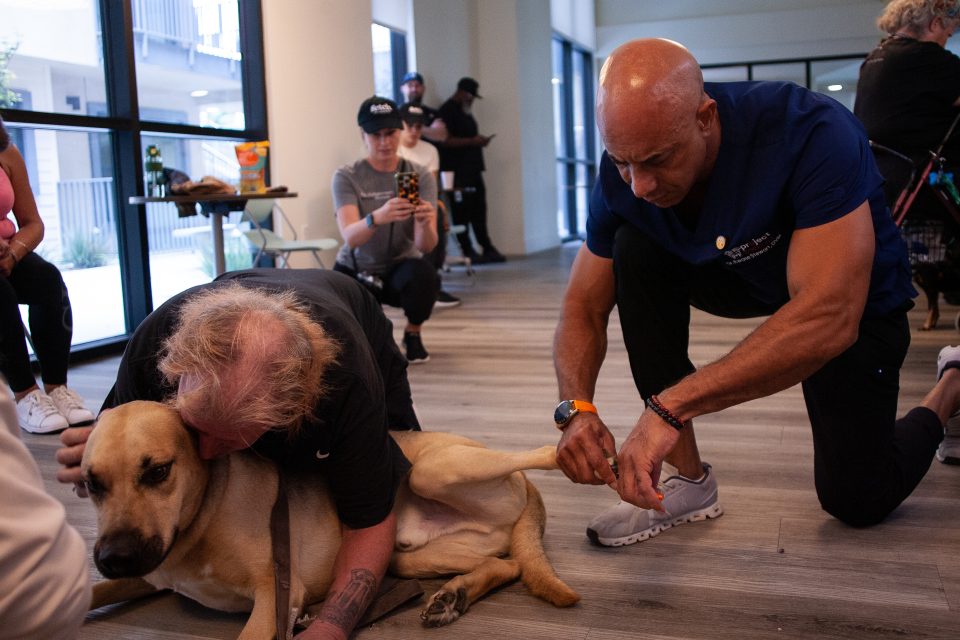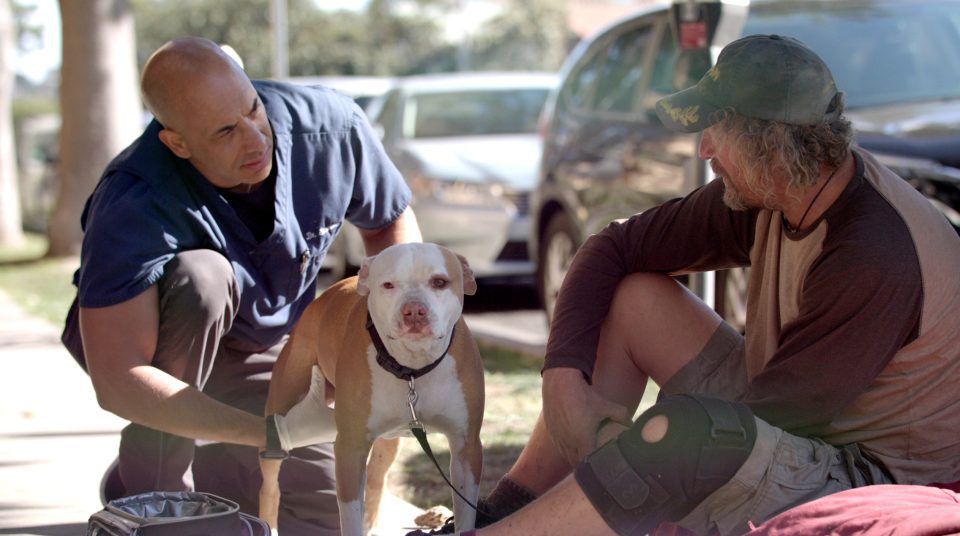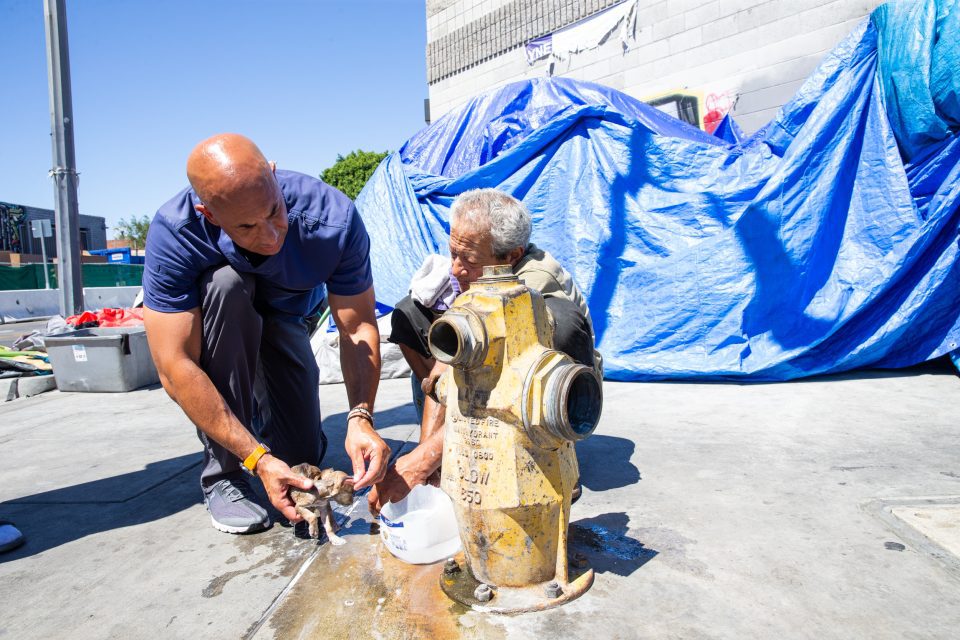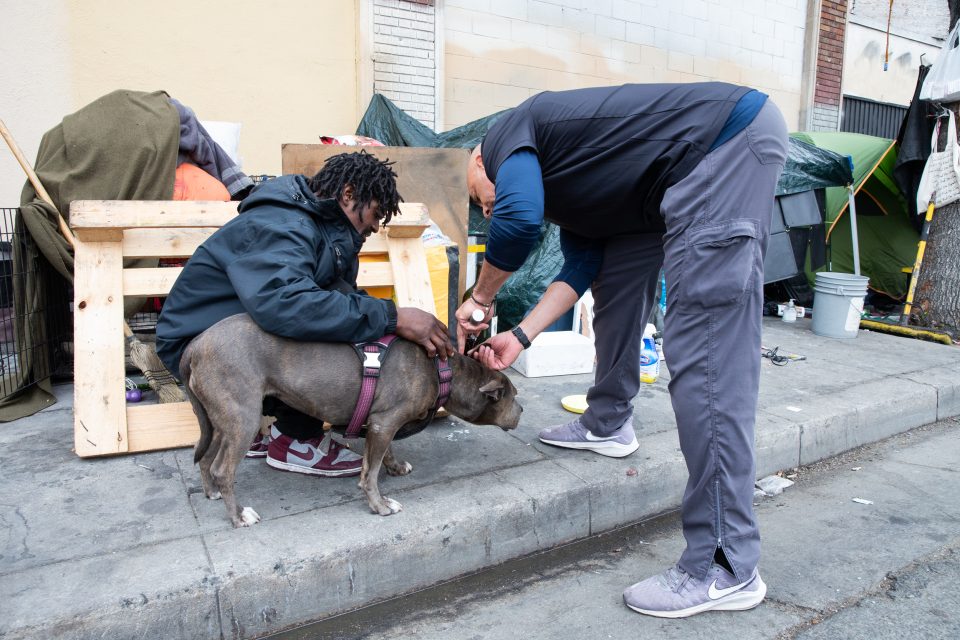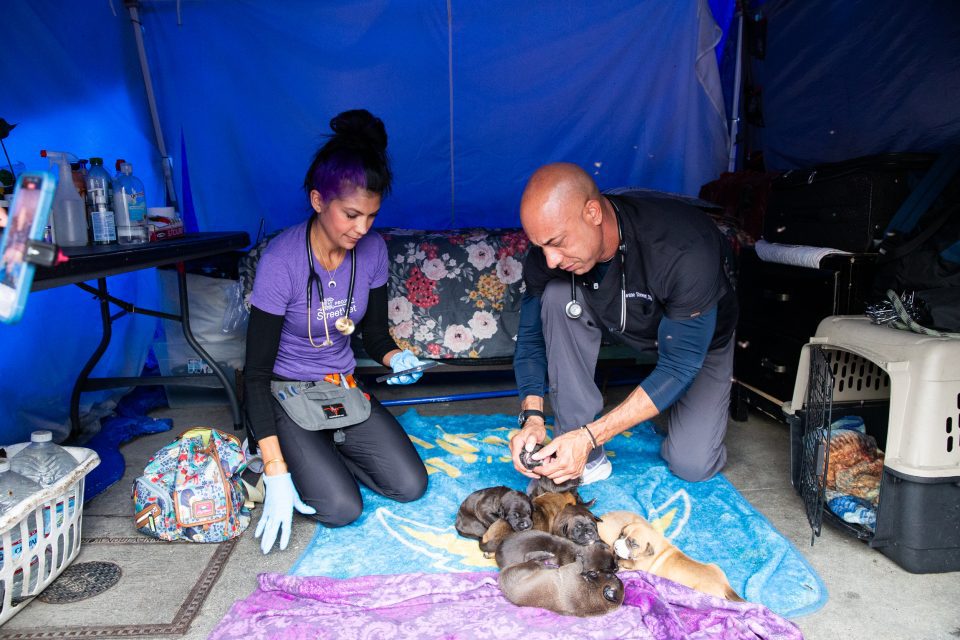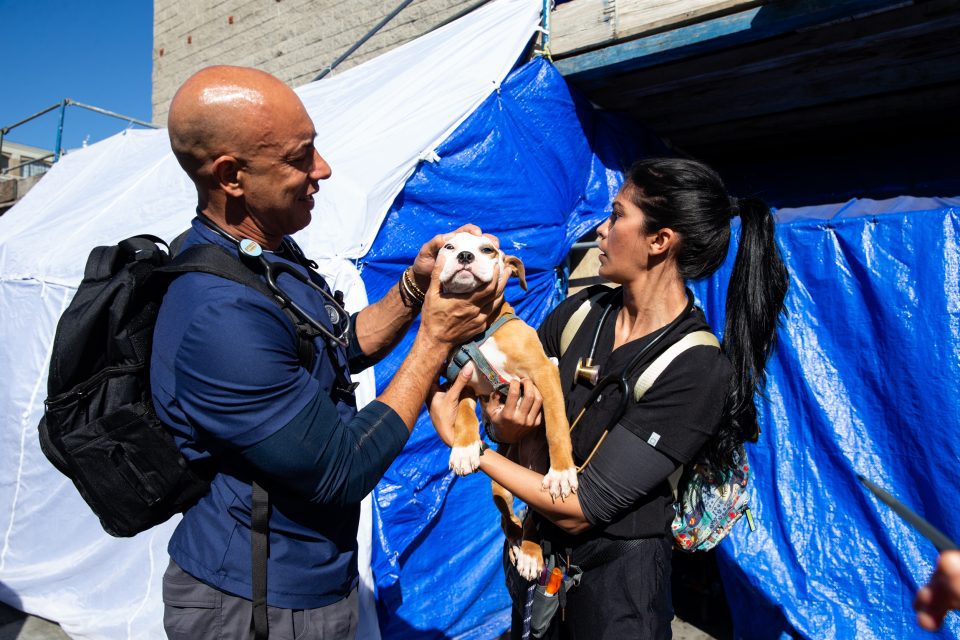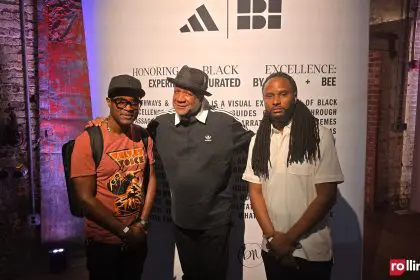Dr. Kwane Stewart, a California veterinarian with over 22 years of experience, has dedicated the past decade to providing free veterinary care to pets of individuals experiencing homelessness. A graduate of Colorado State University’s Veterinary Program, Dr. Stewart’s diverse career includes a five-year tenure as a shelter veterinarian in a struggling area of California, which sparked his understanding of the challenges faced by those unable to afford pet healthcare. His volunteer work, which began as a personal mission, has now grown into Project Street Vet, a nonprofit organization that has cared for over 1,000 pets. Dr. Stewart, recently named a CNN Hero, continues to lead with the message “no judgment, just help.”
[Editor’s note: This is a truncated transcribe of a longer video interview. Please see the video for the extended version. Some errors may occur.]
Why should we consider pets in our community, and what awareness are you bringing to this program?
I’ve been doing this for 20-some years. I could share heart-wrenching and heartwarming stories about people’s relationships with their pets and how they’ve pulled them through tough times. I see that play out tenfold when I’m doing street outreach. For unhoused folks, their pet is everything – it’s their lifeline. I’m trying to get the message out that these companions have value, and we need to honor and treasure that. My role is to provide free medical care to keep them together.
What reasons should we have more empathy for somebody on the street caring for a dog?
When I started this work 13 years ago, I had my own prejudgments. We often make incorrect assumptions about these people. We’re not better than them; they’re going through a tough time. Regarding pets, I realized they don’t care about material goods – they just want to be with you. These people are with their companions 24-7, making them better pet parents in some ways. When you’re struggling alone, it’s hard to get over that hill. For many on the streets, their pet is all they have and their reason for getting up in the morning.
I met a lady in Skid Row who was about to take her life. She was a drug addict who had lost support from friends and family. The only thing she had was her dog. As she was about to end her life, she looked at her dog and thought, “If I go tonight, who’s going to feed you in the morning?” That stopped her. She got up the next day, pushed through, and started getting help. This illustrates how important these animals are to these people.
How can people get involved and support your work in the community?
First, understand these are human beings who need help. Sometimes they just want human interaction. You can support Project Street Vet directly through our website. We’re a 501(c)(3) running on donations. You can also approach people on the streets with pets and offer to sponsor their pet’s care. Speak to your own veterinarian about taking on pro bono cases. Don’t get paralyzed thinking about what you can do – even small actions help.
Since the CNN Hero Award, donations have increased, and we’re now well-funded. We’re growing to more cities, so more financial help is always beneficial. Fetch Pet Insurance has been an amazing sponsor, helping us expand from LA to the East Coast.
What was your “why” and how did you know there was a need for this work?
About 13 years ago, I considered quitting veterinary medicine after working in a municipal animal shelter where we were euthanizing an unheard-of number of pets daily. On the day I was writing my resignation letter, I encountered a man and his dog outside a 7-Eleven. The dog had a skin issue from fleas. I treated the dog, and when I saw them again, the dog was transformed. The man’s gratitude and tears made me realize the impact I could have. I pledged to find more people like him, and I haven’t stopped since.
What would you say to young individuals thinking about becoming veterinarians?
There’s a huge shortage of veterinarians, leading to access to care issues. It’s a beautiful profession that provides a great life if you love pets and have an aptitude for science. By becoming a veterinarian, you’re helping your community and your neighbors. There’s so much joy in giving to another human being without expecting anything in return.
It’s important to find a balance. Take care of yourself, your family, and your career, but also give back to your community. It took me a decade to start giving back, but when I did, it was life-changing.
How can people help during the holidays?
You can donate through projectstreetvet.org. We also welcome volunteers at our clinics. Support us on social media by following and sharing our stories. If you see someone on the streets with a pet, introduce yourself and have a conversation. Ask if there’s any way you can help them or their pet. Sometimes, a simple greeting can open the door to a friendly relationship.
We’re living in a world with less human interaction than 20 years ago. Everything’s delivered to our houses, we text more than we call, it’s all emails. Just saying hello or holding the door for someone can go a long way in creating a friendly relationship with someone you never knew before.
